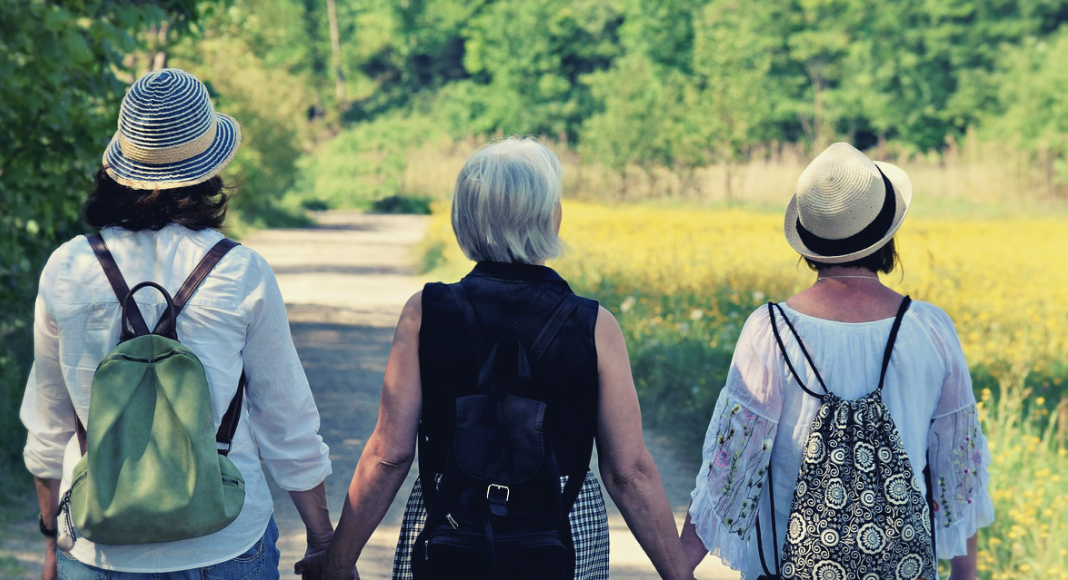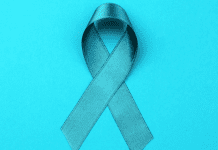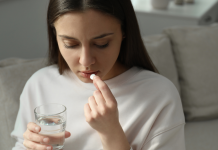 A few years ago, I started struggling with anxiety. I have had bouts with anxiety in the past, but it was usually situationally driven, like when my husband was dying of cancer or my baby was in the NICU. It made sense that I was worried to death and riddled with anxiety and fear of what was to come. But this was different. I didn’t really have any one thing that would be causing anxiety, and I couldn’t even say what was bothering me and making me anxious. Sure, there were things I could find to worry about, but nothing that should have been waking me up at 2am and keeping me up; nothing that should have been causing me to be constantly sick to my stomach and unable to eat. But there we were. I went to my GP and she said I should get counseling to see if it’d help. She never asked about any other symptoms or suggested anything hormone related. I went to therapy a couple of times, but decided it wasn’t for me.
A few years ago, I started struggling with anxiety. I have had bouts with anxiety in the past, but it was usually situationally driven, like when my husband was dying of cancer or my baby was in the NICU. It made sense that I was worried to death and riddled with anxiety and fear of what was to come. But this was different. I didn’t really have any one thing that would be causing anxiety, and I couldn’t even say what was bothering me and making me anxious. Sure, there were things I could find to worry about, but nothing that should have been waking me up at 2am and keeping me up; nothing that should have been causing me to be constantly sick to my stomach and unable to eat. But there we were. I went to my GP and she said I should get counseling to see if it’d help. She never asked about any other symptoms or suggested anything hormone related. I went to therapy a couple of times, but decided it wasn’t for me.
I suffered with anxiety and the disrupted sleep for years not knowing that the actual cause was totally normal and something every women eventually encounters: perimenopause.
All I have ever heard about menopause or “the change,” is that some women have hot flashes and it means no more periods. It was something I actually looked forward to because…no more periods. Woohoo! Am I right? No one ever even mentioned “perimenopause.” I do remember my grandma telling me that she had gone through menopause and had never taken any hormones. She was very proud of that. I never understood it, until now. Why she could tell me that, but not prepare me for the truth about perimenopause and menopause symptoms, I do not know. I wish someone had been more open about it so I could have known what to expect and how to treat the symptoms.
I assumed I wouldn’t really go through menopause since I had a hysterectomy with my last baby. Because I truly believed menopause simply meant a few hot flashes and no more periods, I sort of figured I just took the bypass. But I still have ovaries, so I was mistaken. Much like periods, symptoms vary; some people have a few symptoms, some have none, and some have really severe symptoms. Because I had terribly painful periods and wasn’t great at having babies, I should have known I was going to have a pretty miserable perimenopause. But I was innocent and clueless and this stuff hit me out of nowhere! I also thought I was way too young to be in menopause.
The average age for the onset of menopause is 51, but perimenopause can happen much earlier than that, and you don’t have to miss a period to be in perimenopause. In fact, most women will have normal periods for years while they are in perimenopause. Menopause is when your ovaries stop making estrogen and perimenopause is the time leading up to that when your estrogen levels are fluctuating. But lots of other things are going on hormonally, too and that’s why all sorts of symptoms start happening. Things like hot flashes, disrupted sleep, mood swings, night sweats, brain fog, weight gain, fatigue, headaches, vaginal dryness, hair loss (or growth in new places!), sore breasts, anxiety, and depression. And with the loss of estrogen, our brains actually change, too. There’s not a ton of info about the changes in the brain, but we know cognitive and memory deficits exist during menopause and there are estrogen receptors in our brains.
The symptoms are many, but let’s start with the one I was expecting: hot flashes.
These bad boys hit randomly, and I probably have 4-10 a day. Let me tell you, you don’t just get hot. I’ve always been cold natured (the only person on the beach wearing a sweatshirt). But when a hot flash hits me, I literally turn beat red and feel like I am standing in a fire pit. You feel like you’re on fire from the inside out, like maybe someone injected you with some crazy habanero pepper poison. The only thing you can do is strip off your clothes and stick your head in the freezer. But if you’re, say, out in public, I suggest drinking a cool glass of water instead. Water helps your body regulate its temperature and we can always use the hydration.
Speaking of hydration, another symptom is vaginal dryness caused by lower levels of estrogen and can be noticed as itching or painful intercourse, and can even lead to vaginal atrophy. Vaginal atrophy is the thinning of the vaginal walls. With vaginal atrophy also come greater risks for vaginal infections and urinary infections as well as urinary function problems. Yippee! There are lots of moisturizers and lubrication options on the market, so don’t suffer with this. There are also ways to put estrogen back into your body via estrogen creams, suppositories, rings, or pills. As with anything, there are risks associated with using estrogen, so it is something you’ll want to discuss with your doctor.
Night sweats are disgusting. You don’t even feel hot, yet you wake up completely soaked and dripping with sweat. The first few times I thought I must be running a fever. One idea is to put two sheets on the bed, with a liner (I used lap pads like I did on my baby’s cribs) in between. Then you can just strip the wet sheet and liner off.
Just when you finally have all the kids in the house sleeping through the night, you now can’t sleep through the night. At first I thought I had just trained myself to get up so much with kids that I needed to retrain myself to stay asleep, so I would literally lay in bed staring at the ceiling from 2am until about 5am. Then at 6am when the alarm sounded, I was exhausted and felt as if I had run a marathon all night. Fatigue was soon to follow, too. I am not one for taking sleeping aids, but I started taking melatonin, which is a hormone your body makes to help you sleep. In order for it to really work, however, you need to be still and have darkness. Progesterone deficiency can play a role in disrupted sleep. It acts on our GABA receptors, which are the same receptors that sleeping pills, anti-anxiety and alcohol act upon to produce calm. Ask your doctor if disrupted sleep is an issue for you because there are tons of options.
Anxiety and/or depression may be the worst of all the symptoms, in my opinion, and certainly the most unexpected. I learned one great thing for my anxiety from the counseling sessions I went to and that is to concentrate on my breathing and practice deep breathing. As you take your breaths, concentrate on breathing, taking and counting each deep breath and if a thought enters your mind, push it out and go back to counting your breaths. I start with the number 9 and count backwards; this helps you concentrate on the breaths. If you find your thoughts drifting, wrangle them back to your breaths and start over at 9. Know that it is OK to get help. It is perfectly normal to need help. We are all human, we all have problems, and we all feel yucky and need help sometimes.
We can expect to enter into perimenopause sometime in our early 40s. It’s different for everyone, of course. A lot of the symptoms can be navigated by lifestyle changes. With daily exercise, deep breathing, a healthy diet, and healthy sleeping habits we can actually alleviate some of the symptoms of perimenopause. For some women, HRT (Hormone Replacement Therapy) is a good option. As with anything, there are risks involved, so do your homework and talk to your doctor in order to make an informed decision for yourself.




















Wonderful information and very complete ! It was 30 years ago for me and not bad at all. But as you said “ different for each of us”Love you Niece
AWE! I just saw this, Aunt Margaret Ann! Thank you! LOVE YOU!!!